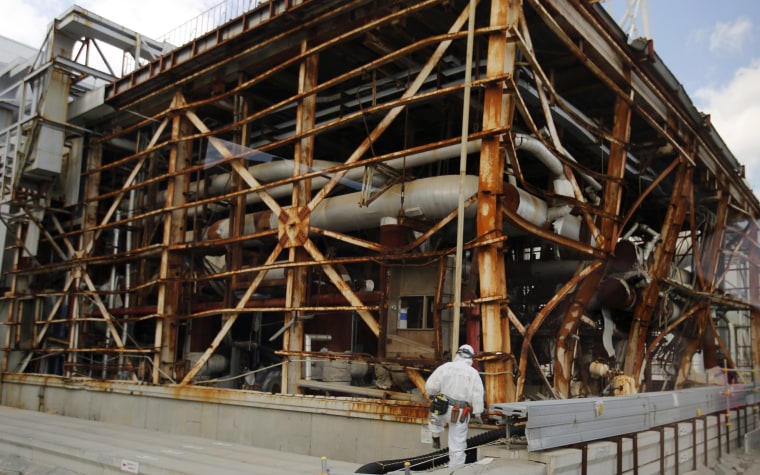Editor's note: This story has been updated to reflect that TEPCO attributed the delay in not reporting the meltdown to officials having not read a section about meltdowns in its own manual. The story previously reported TEPCO misread the manual.
TOKYO — The operator of Japan's Fukushima power plant has apologized for not announcing its nuclear reactors were in meltdown for months after a huge earthquake and tsunami devastated the facility five years ago.
Tokyo Electric Power Company (TEPCO) denied for two months after the disaster that a meltdown had taken place. It said officials didn't know the company's manual contained a section for determining if a meltdown is underway.
“We deeply apologize for failing to sufficiently check our manual and for mistakenly explaining that there was no evidence to determine that there was a meltdown,” TEPCO said in its statement on Wednesday.
The operator apologized repeatedly after three reactors at its Fukushima Dai-ichi plant had meltdowns when a magnitude 9 earthquake and tsunami hit northeast Japan on March 11. The disaster triggered massive radiation leaks that forced tens of thousands of people to evacuate.
TEPCO said that after reviewing their company manual its officials realized that if a reactor core was more than 5 percent damaged, the incident should be immediately declared a meltdown.

Three days after the earthquake and tsunami, the monitoring system at the plant indicated that Reactor Unit No. 1 was 55 percent damaged, while Reactor Unit No. 3 was 30 percent damaged. Reactor 2 was discovered to be 35 percent damaged on March 15, said Satoshi Togawa, a spokesman for the company said on Thursday.